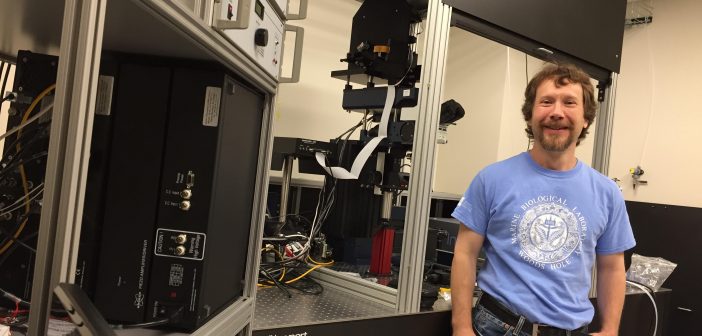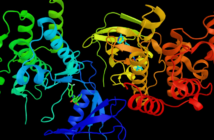The brain meets biotechnology as Brown neuroscientists earn funding to study biomedical technologies.
With national fellowships awarded on September 20, two Brown University neuroscience faculty members have gained new support for their study of innovative biomedical technologies.
Gilad Barnea, PhD, associate professor of neuroscience, and Ben Stanger, MD, PhD, of the University of Pennsylvania will collaborate via a fellowship from the Pew Charitable Trusts Biomedical Programs Innovation Fund to apply Barnea’s new neural circuit tracing technology to cancer research.
Meanwhile Scott Cruikshank, PhD, associate professor of neuroscience (research), will use a fellowship from the National Science Foundation to travel to the University of Michigan, where he’ll master an emerging method of controlling neurons with light and then return to teach the method to colleagues in Rhode Island.

Gilad Barnea
Barnea: Applying a neurotechnology to cancer
With prior Pew funding and support from other sources, including the Brown Institute for Brain Science Innovation Fund, Barnea has been developing a novel means of tracing entire functional circuits in the nervous systems of fruit flies. The technology involves engineering an artificial molecular-signaling pathway into neurons that is triggered with a specific protein. Cells that join in a circuit share the protein where they connect, causing the circuit to uniquely stand out.
Cruikshank: Illuminating the brain
To understand how the brain allows us to sense, perceive, think and learn, Cruikshank studies the circuitry that connects two brain regions: the thalamus and the cortex. He uses a variety of methods, including electrical recordings from cells, to understand the circuits, but an increasingly vital tool is optogenetics, which allows scientists to genetically engineer neurons to turn on or off when exposed to pulses of light.
Read the full story here.




